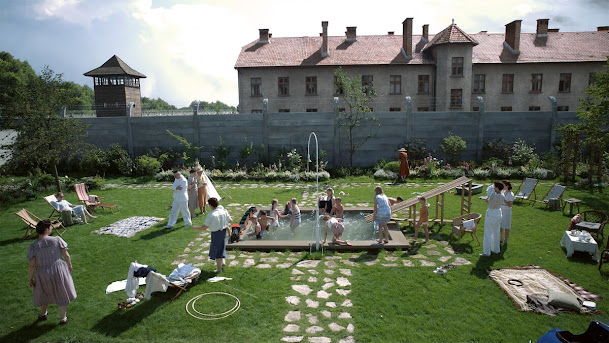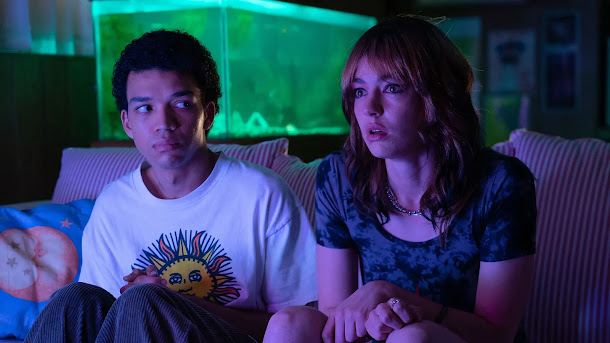"Superman" review: What's wrong with a little kindness?
“Superman,” 2025, directed by James Gunn
★★★½☆
After nearly 20 years in the modern superhero era — led by the insidiously happy Mickey Mouse and his puppeteer Bob Iger – it’s hard to believe that aggressively earnest, morally affirming filmmaking feels refreshing, but somehow writer-director James Gunn’s “Superman” does. The new version of Superman (a tonally consummate David Corenswet) taps into what has made Superman a sustaining cultural symbol and seeks to teach us about the value and simplicity of a nuanced, steadfast moral compass. This ultimately amounts to what feels like a welcome pendulum swing from billionaire playboy Tony Stark or, even worse, Zack Snyder’s overserious, Christ-burdened version of Superman. Like much of Gunn’s work and franchise filmmaking at large, there’s a level of overstuffing in “Superman” that sometimes weighs down its emotional core, but its successes far outpace its stumbles.
Gunn wisely follows a recent trend of forgoing the superhero origin story as to avoid boring the audience with the modern mythology they already know, instead throwing us right into the thick of an ongoing conflict Superman is having with a Gunn-created villain called the Hammer of Boravia. Skipping the ground-floor basics gives the movie a lot of room to play, but it’s quickly apparent that Gunn has more of a sandbox than he knows what to do with, immediately introducing us to a slew of characters, concepts, and locations, all set in a heightened, color-coordinated world. It gets overwhelming fast.
Corenswet and the cast reel in Gunn’s writing, though, even when it feels like it’s at its breaking point. Superman and his girlfriend of three months, Lois Lane (an equally honed but underutilized Rachel Brosnahan,) share a scene near the beginning of the film in which he allows her to interview him as Superman (rather than, of course, his unassuming alter ego Clark Kent) while still attempting to answer questions in a way that conceals their relationship and his identity. The two poke at each other, at first playfully and eventually with more pointed anger, until the interview spirals into an argument. This scene is a great showcase of the actors’ ability to sell Gunn’s hallmark brand of broad humor – It’s hard to think of many actors who could make “#supershit” funny, but somehow Corenswet pulls it off – as well as the script’s attempts to motion towards something greater than the sum of its parts.
One of the main sticking points of Clark and Lois’ argument is about a far-flung geopolitical conflict between two fictional countries, Boravia and Jarhanpur, in which the former is invading the latter. It’s implied in later scenes that Jarhanpur is a smaller developing country and Boravia is a more robustly funded military force, as well as an ally of the United States. It’s hard not to draw a comparison to Israel’s invasion of Palestinian territory, but Gunn eschews the parallel from running too close by giving Boravian prime minister Vasil Ghurkos (Zlatko Burić) an Eastern European accent and setting Jarhanpur somewhere closer to South Asia rather than what the West knows as the Middle East. Even with Gunn’s tiptoeing, though, the real-life comparisons are there, maybe even more apparently in Lex Luthor’s (Nicholas Hoult) characterization, which will almost certainly call to mind contemporary tech overlords like Elon Musk and Jeff Bezos.
Gunn, in a manner one could argue is cowardly, never lets us dwell on these comparisons for too long, though, because he’s so eager to pack his movie with ideas. Superman is joined by his superpowered dog Krypto; the so-called “Justice Gang”, made up of Mister Terrific (Edi Gathegi), Green Lantern (Nathan Fillion), and Hawkgirl (Isabela Merced); his fellow Daily Planet reporters, including but not limited to Jimmy Olsen (Skyler Gisondo) and Steve Lombard (Beck Bennett); and Metamorpho (Anthony Carrigan). All of these concepts could make a movie in itself. All together they grind up against each other and give little time for anyone in the wide ensemble to ever flourish individually, with the exception of Gathegi and Gisondo, who are granted a moment to fill in the sketches of their archetypes.
The lede has been buried here; “Superman” is primarily a movie about an immigrant to Earth learning the value of humanity and just being a plain old nice guy. But if this review is evidence of anything, it’s that there is much to distract from the movie’s central ideas.
When everything clicks, though, it has a profound effect. There’s a particularly moving scene in which Superman speaks to his father, Pa Kent (Pruitt Taylor Vince) about how he feels lost in his identity because of a chilling discovery about his origins. “Your choices, your actions. That’s what makes you who you are,” Pa Kent says. In another scene, Superman lectures Lex Luthor on the value of vulnerability: “I love, I get scared, but that is being human” he says. “And that’s my greatest strength.” It's these moments that bind the movie together and make it memorable, grounding the story in a way that feels palpably moving and – perhaps more than any other mass-market blockbuster in recent memory – purposefully, invigoratingly hopeful.
Though messy, it’s hard to stay mad at “Superman” for all that long when you see Corenswet smile up at the camera in a truly touching final sequence set to “Punkrocker” by Teddybears and Iggy Pop. It feels joyful in a way that’s hard to describe, and if it’s inspiring genuine, thoughtful kindness in its viewers, can we really fault it all that much?




Comments
Post a Comment